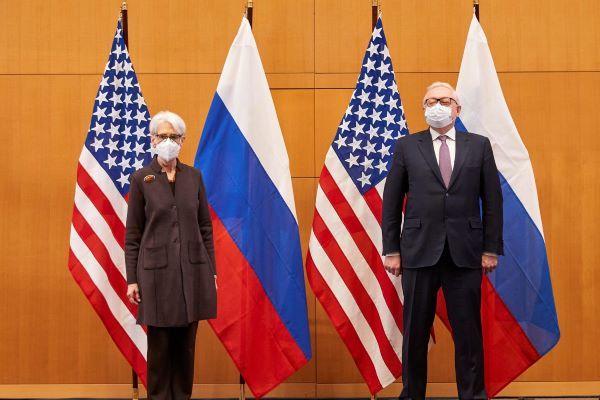U.S. News
United States Enforces Significant Fresh Sanctions on Russia, Focusing on Financial and Defense Sectors
In a significant move marking the third anniversary of the Ukraine conflict, the United States unveiled its most extensive set of sanctions against Russia since the invasion two years ago. The focus is squarely on Russia’s financial sector and military-industrial complex, aimed at hampering the Kremlin’s war machine.
Biden Administration Responds to Navalny’s Death
Coming exactly one week after the death of opposition leader Aleksei A. Navalny, blamed on Russian President Vladimir V. The sweeping sanctions imposed on Putin by the Biden administration underscore their commitment to applying financial pressure. These measures come amidst congressional deliberations on additional aid to Ukraine.
“The timely sanctions on Putin, post Navalny’s death, reflect Biden’s commitment, amid Ukraine aid talks,” according to Barron’s.
Sanctions Aimed at Economic Pressure and Military Supplies
President Biden, in announcing the sanctions, reiterated the urgent need for Congress to allocate more funds to Ukraine, emphasizing the potential consequences if support is not provided promptly. The sanctions are designed to further restrict Russia’s energy revenues and counter its sanctions evasion efforts globally.
Targeting Individuals and Entities Associated with Aggression
Crafted by the Treasury Department, State Department, and Commerce Department, the latest sanctions focus on more than 500 individuals and entities. These measures specifically target those associated with Russia’s aggression toward Ukraine. Additionally, sanctions are being imposed on three Russian government officials linked to Navalny’s death.
Global Efforts to Weaken Russia’s Economy
Treasury Secretary Janet L. Yellen highlighted signs of weakness in Russia’s economy and military-industrial base, attributing it in part to global efforts supporting Ukraine’s defense. Over the past two years, the United States and G7 allies have implemented various measures, including capping the price of Russian oil and freezing central bank assets.
Europe Joins Economic Pressure
This week, the European Union revealed its 13th tranche of sanctions. Meanwhile, Britain declared sanctions targeting companies associated with Russia’s ammunition supply chain. Additionally, they imposed sanctions on individuals linked to the Arctic prison where Navalny passed away.
Impact and Resilience of Russian Economy
Despite the broad sanctions, Russia’s economy has proven resilient, with countries like China, India, and Brazil continuing to purchase Russian oil. The effectiveness of the latest sanctions in altering the trajectory of the war remains uncertain.
Debates on More Aggressive Measures
The United States and Europe are exploring heightened actions in response to the conflict in Ukraine. This includes the contemplation of seizing $300 billion from Russia’s frozen central bank assets to support Ukraine’s war and reconstruction initiatives. Deputy Treasury Secretary Wally Adeyemo emphasized that sanctions can slow down Russia. However, he highlighted the ongoing necessity of financial support for Ukraine’s defense on the battlefield.
“International response to Ukraine crisis crucial; considering seizing $300B from Russia to aid war-torn Ukraine is imperative,” according to Bloomberg.

